In this series, Editors Toronto members and BoldFace contributors share their experiences, insights, and tips on the practical aspects of working as an editor or writer. The previous edition of “Editors Advise” tackled recognizing and dealing with our editorial weaknesses. For this edition, six editors share their recommendations related to professional development.

What new editing-related skill or skills are you planning to learn or have recently learned? Why these?
Erin Della Mattia (she/her), writer and burgeoning freelance editor
During the 2021 Editors Canada Conference, I attended the “Beyond Editing” round-table discussion on coaching writers with Genevieve Clovis, Sara Letourneau, and Tanya Gold. I hadn’t heard about writing coaching before, but my interests and skills in editing lean in the developmental direction, so I found the session really illuminating. I especially appreciated how forthcoming the speakers were in regard to how they manage this part of their businesses (the types of sessions they offer, communication formats, pricing, etc.).
I really like the idea of working with a writer for an extended period of time to help them develop their skills, style, and confidence, and this session gave me a clear idea of how I could do so in the future. My plan now is to read more about the craft of writing so that I can offer a deep ocean of collective knowledge to my future clients.
Adrineh Der-Boghossian (she/her), project manager and freelance editor
Indexing as well as editing recipes and cookbooks are two of the editing-related skills I recently learned. They were both areas I was interested in and wanted to pursue further. What better reason than that to learn a new skill?
Alex Marcoccia (he/him), editor-in-chief and freelance editor at Self Pub Hub
I’m enrolled in the publishing program at X University (formerly known as Ryerson University) and have just completed Substantive and Stylistic Editing. Learning to edit a document from a very high level is so different from the copy editing classes I’ve taken previously. I enjoy it much more. It’s fun to read a large manuscript, collect its main ideas and my impressions, and then bottle that up into concise feedback to help an author create a stronger text. I would like to be able to read and retain information faster. I find I need to read quite slowly in order to really absorb and understand content. This may just come with practice, or maybe I’ve peaked in terms of reading speed and retention.
Berna Ozunal (she/her), certified professional editor and editing instructor
Accessibility—this is an absolute must for me. I have some knowledge, but not enough. I tried enrolling in some college programs but they were cancelled due to lack of enrolment, sadly. So that is at the top of my list. Why accessibility? What could be more worthy of an editor’s time than learning how to make content as accessible to as many people as possible.
Vilma Indra Vītols (she/her), freelance editor-in-training
I want to learn how to optimize my use of Word (macros, styles, other formatting)—there is a world of Word that I know little about.
The International Plain Language Federation (IPLF) is working on a new international standard, so I’m very keen to learn more about plain language editing.
I’m also curious to learn a bit more about design. I find the range of options overwhelming and wouldn’t know what to suggest in terms of infographics and other visuals. I may well invest in The Non-Designer’s Design Book as a start.
Finally, fact-checking! I want to learn how to navigate the overwhelming number of online media sources and I’ve just registered for Fact-checking Online Media Sources at George Brown College.
Michelle Waitzman (she/her), writer and copy editor
I sell myself as someone who takes very complex subject matter and makes it easy to understand. To achieve this, I focus a lot on plain language. I’m looking forward to learning more about the new international standard that’s coming together. I’m also trying to understand more about how formatting and visual elements help to make writing more clear. Since I have never studied graphic design, that is something I need to work on so that I can confidently advise clients on all aspects of plain language.
Can you name a particularly useful course or webinar you’ve taken and would recommend to other editors?
Erin Della Mattia (she/her), writer and burgeoning freelance editor
I don’t know whether a recording of it is still available from this year’s Editors Canada conference, but I would definitely recommend Iva Cheung’s “Trauma-Informed Editing” session to every editor, no matter what kinds of documents or clients they work with. From scheduling and communication styles to tactful querying and protecting your own mental health, Iva offers important guidance for working with writers—and editing for readers—who may have experienced trauma.
Iva explains that the key is to avoid distress by empowering authors to make informed choices about the editing process. Handing over one’s work to an authority figure can place the writer in a position of vulnerability, and it is often very easy for power discrepancies to arise in editor-author relationships, whether an editor intends it or not. So, regardless of a client’s experience or background, I think that Iva’s strategies will help editors create a more equitable and collaborative work dynamic between themselves and their clients.
Adrineh Der-Boghossian (she/her), project manager and freelance editor
I recommend Indexing for Books, Journals, and Reports offered by X University’s The Chang School of Continuing Education and part of its publishing program. Even if you don’t plan on being an indexer or offering indexing as one of your services, you will learn a lot!
Berna Ozunal (she/her), certified professional editor and editing instructor
I am just finishing up the plain language program at SFU Continuing Studies, and it’s been very valuable to me. I believe all editors working today should be well versed in plain language principles and practices.
Vilma Indra Vītols (she/her), freelance editor-in-training
Editors Canada offers a wide variety of webinars, and I recommend checking them out—there is something for everyone. Here are a few I’ve taken:
- Design for Readability
- Estimating Editorial Costs
- Introducing The Chicago Manual of Style for PerfectIt
I also enjoyed the Editors Toronto program “So You Want to Freelance,” which was geared toward students and new editors.
Michelle Waitzman (she/her), writer and copy editor
I highly recommend attending an Editors Canada national conference. I’ve been to five of them (including the 2021 virtual conference) and I always come away full of great ideas and information about how to improve both my editing and my business. It has also given me a chance to meet some really interesting people who get what I do for a living. It’s an intensive professional development weekend, and definitely worth it.
This article was copy edited by Ambrose Li.


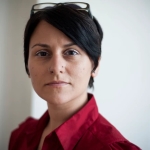
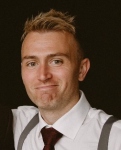
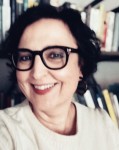
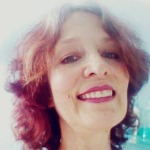
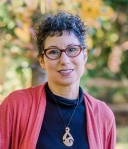
Macros! That’s such an important thing to mention, Vilma, and something I also need to learn more about. Thanks for sharing that!
LikeLike